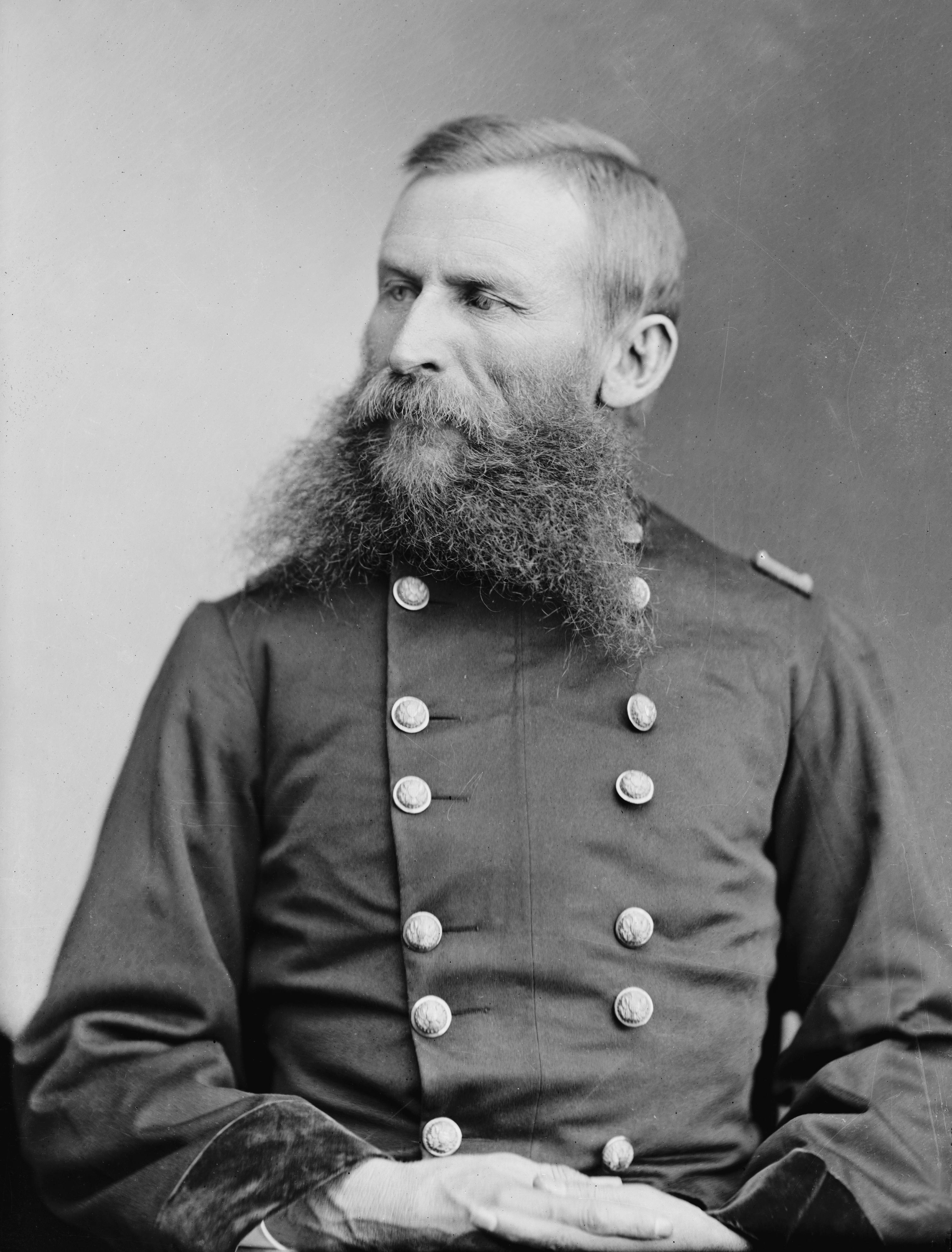When Grant
embarked on his Overland Campaign against Robert E. Lee in Virginia
several other armies moved in conjunction with him. One of these was
the Army of West Virginia, commanded by Brigadier General George
Crook. He set off through the mountains toward southwestern Virginia,
aiming to destroy the Virginia and Tennessee Railroad. The
Confederates opposing him, and another Union army under William
Averell with similar plans, were a few scattered units put under
Brigadier General Albert Jenkins just the day before Crook's advance.
 |
| Jenkins |
Jenkins gathered
his men at Cloyd's Mountain in Pulaski County, deciding to make his
stand at that strong position. Crook approached the position and
decided against a head on assault as too costly. Instead he sent one
brigade around the Confederate right while the other two remained in
front to support them. The flanking force, under Colonel Carr White,
was composed of green troops. They charged the Confederate flank, but
were driven back by the Confederate fire. Nonetheless the two
brigades, one of them under future president Rutherford B. Hayes,
went forward anyway. They charged at 11 am, and made it all the way
to the Confederate entrenchments. The southerners stood firm, and the
fighting, which was often hand to hand, swayed back and forth.
Jenkins did his best to shift troops back and forth to threatened
points. Finally the Confederate line was broken when Jenkins was
mortally wounded, Crook sent in two more regiments, and the White's
flanking brigade made a renewed attack which made better progress.
 |
| Crook |
This battle was
small, with only 6,100 Federal troops on the field and 2,400
Confederate, but the fighting was very fierce. Crook lost 688 men,
more than 10% of his army. Jenkins lost 538, almost a quarter of his
army. After this victory Crook and Averell continued to move forward,
and were able to destroy part of the Virginia and Tennessee railroad,
cutting that important Confederate supply line.


0 comments:
Post a Comment